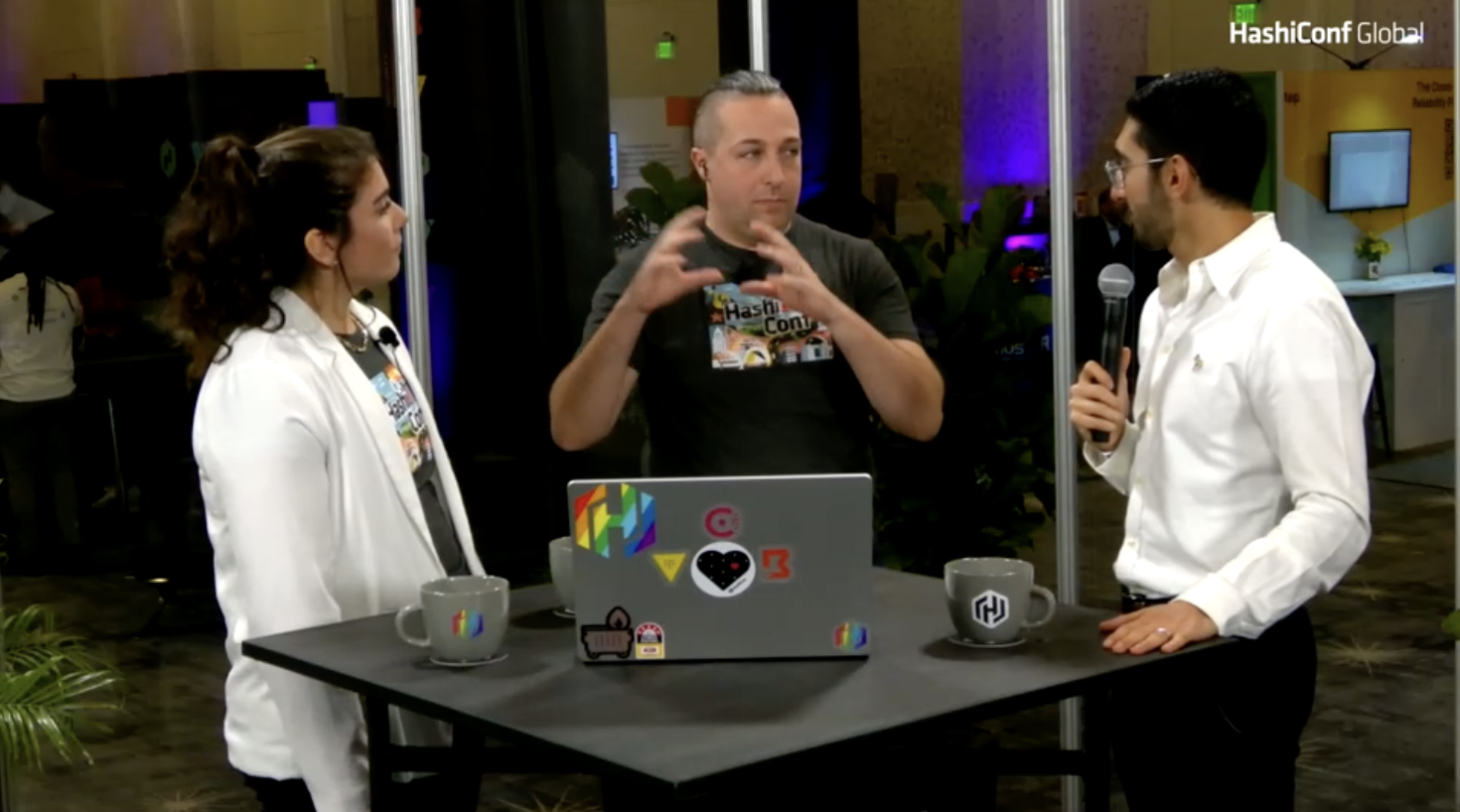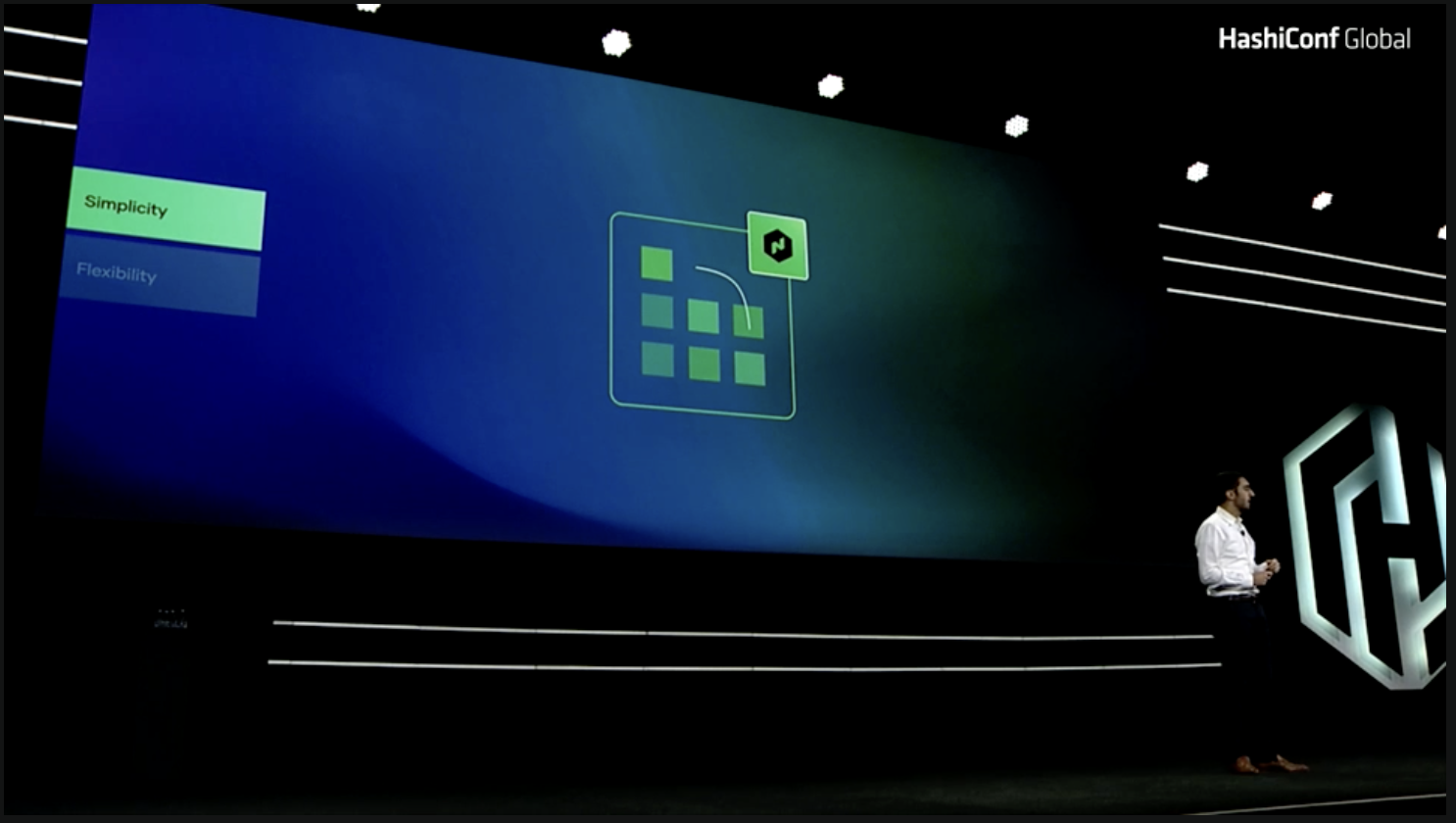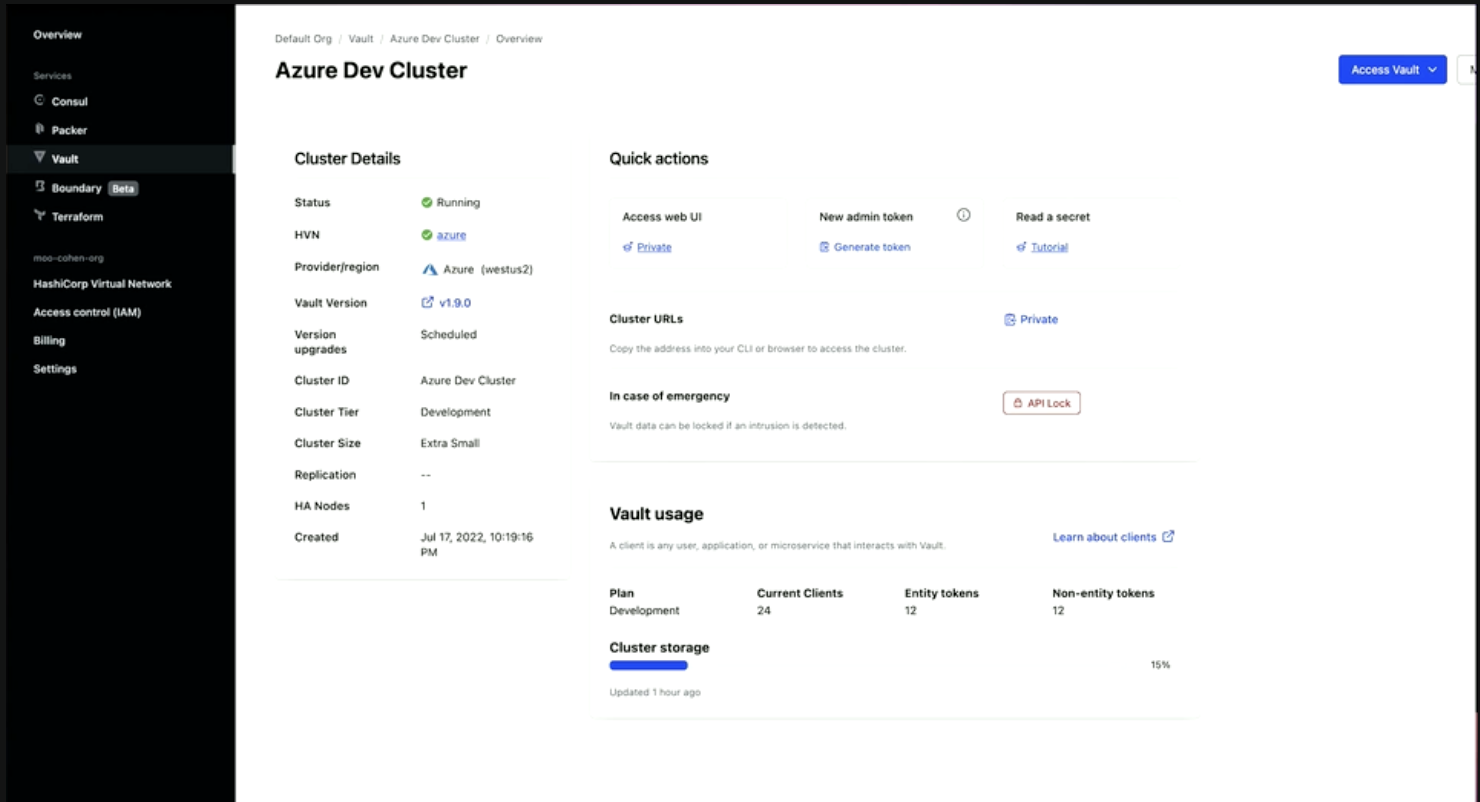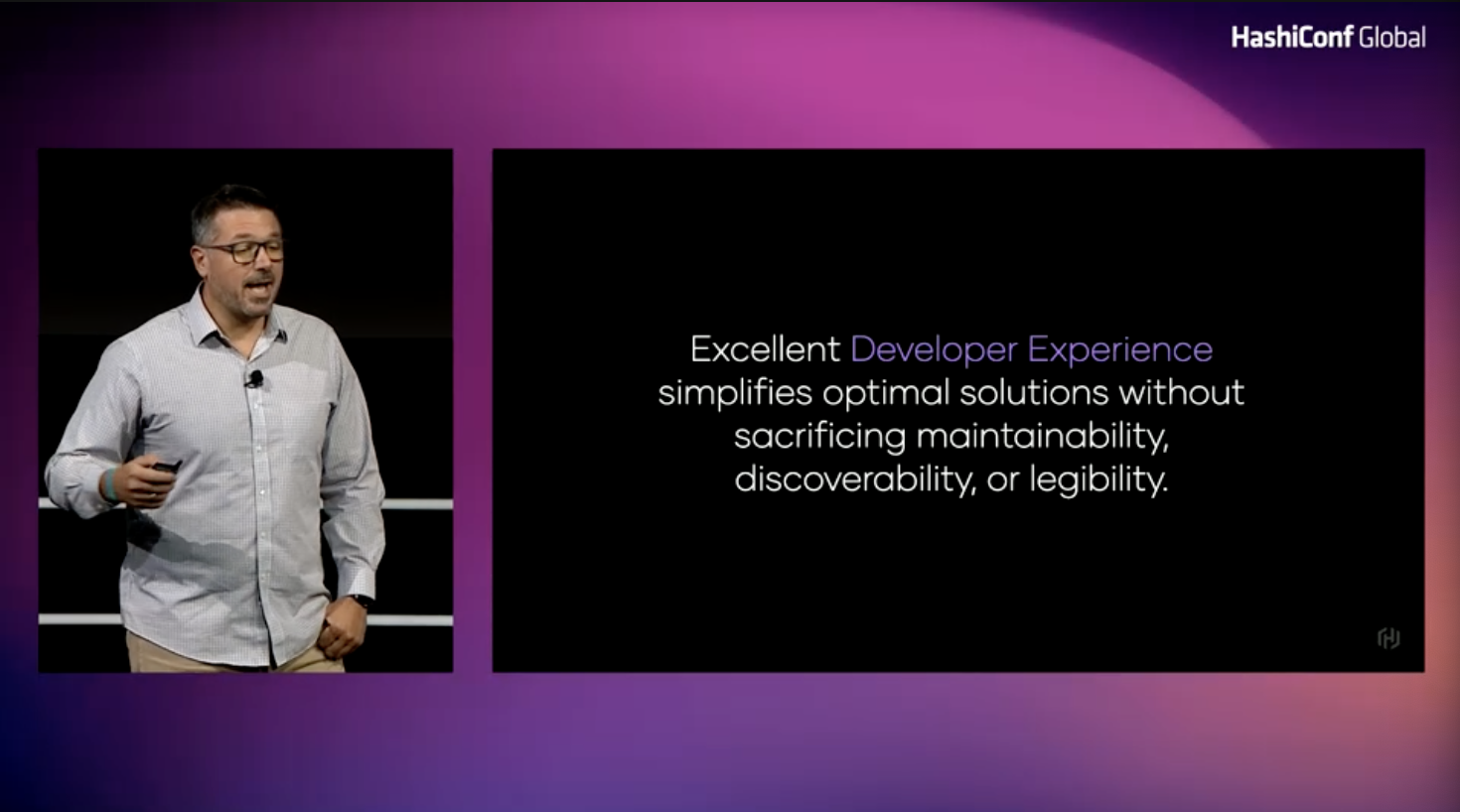![]()
While I was sad to miss RedMonk’s Monktoberfest this year in Portland, ME, my absence did have one silver lining: I was able to virtually attend this year’s HashiConf Global.
Logged in for the opening keynote at #HashiConf. Looking forward to today's sessions, while my @redmonk colleagues are attending #monktoberfest.
Might be time to grab a Tropicalia in solidarity & to celebrate the occasion 🍻
— Dr. Kate Holterhoff (@KateHolterhoff) October 5, 2022
There is a lot to appreciate about this year’s HashiConf.
As our new Covid-19 reality has resulted in a new norm—virtual and hybrid conferences—it is becoming clearer and clearer that these mixed attendance style events pose unique challenges. However, the HashiConf organizers have done a really nice job making the virtual experience (can’t speak to in-person) both smooth and enjoyable. A nice and unexpected touch: musical interludes during the breaks. I very much liked Emily Hopkins’s harp and gameboy stylings, as well as Andre Huang’s midi unicorn.
The two virtual MCs Anthony Burke, Senior Solutions Engineer at HashiCorp, and Sophie Gairo, Software Engineering Manager at Hashicorp, brought a fun and engaging energy to HashiConf’s online audiences. Rather than dead-air and elevator music between sessions, it was nice listening to these MCs discuss a range of ideas and products centered on the developer and Ops experience—subjects that included upskilling and the future of platform engineering and DevOps. Burke and Gairo also used this time to interview such industry lights as Mitchell Hashimoto, founder of HashiCorp who changed roles from CTO to an individual contributor in 2021, Armon Dadgar, Co-Founder and CTO of Hashicorp, and Tom Withers, DevOps Consultant for RS Components.

I’ve distilled my takeaways from this year’s HashiConf to 4 points (not an easy task, I assure you!). These points reflect themes I heard come up repeatedly and explicitly. I will be looking to notions of Simplicity, Partnerships, Flexibility, and DevX to better conceptualize what values will steer HashiCorp moving into 2023.
1) Simplicity
“Let’s hide the plumbing and make is easy” -Armon Dadgar, Co-Founder and CTO of Hashicorp
HashiConf’s presenters placed a tremendous amount of weight on the idea of simplicity. Speakers including Dadgar and Neena Pemmaraju, Director of Product Management of HashiCorp, emphasized simplified deployment and management especially.
This focus on simplicity seems to be driven by a couple of things. The skills gap came up repeatedly, as well as HashiCorp’s answer to it of Cloud Engineer Certifications. Moreover, without adequate professionals to do complex DevOps and platform engineering work, HashiCorp is touting its No Code technologies in a move to lower the barrier.
Consul, a product that “uses service identities and traditional networking practices to help organizations securely connect applications running in any environment,” took center stage at the event as a product positioned to emphasize simplicity. This move is strategic, as the type of work Consul accomplishes, like competitors in the space Istio and Linkerd, is notoriously complex.
Notions of simplicity appeared again on Day 2 of HashiConf during Dadgar’s explanation of Policy as Code for Terraform. By making policy selection and sets reusable, Terraform simplifies policy enforcement.
Finally, HashiCorp has long touted Nomad, their enterprise Kubernetes product, for its simplicity, and this narrative took pride of place again during Thursday’s keynote.

2) New Partnerships
It’s also about supporting users wherever they’re running -Armon Dadgar

One of the best ways that vendors can reduce customer friction is by facilitating integrations. With this goal in mind, HashiConf introduced several partnerships and integrations throughout the various sessions.
In the opening keynote, for instance, Dadgar announced that in order to support users wherever they’re running, HashiCorp is bringing HCP Vault to Azure. In addition, as part of the ServiceNow integration announcement Harold Giménez, VP Infrastructure Products at HashiCorp, also announced a beta ServiceGraph connector for Terraform.
3) Interoperability/ Flexibility
Supporting interoperability and flexibility is key to HashiCorp’s developer experience strategy of reducing friction, meeting devs where they are, and generally simplifying the process of adopting HashiCorp’s product suite.
This positioning involves a number of different approaches. A few that jumped out to me include Terraform’s prioritization of workflows over language as well as Consul’s decision to support non-Kubernetes environments.
4) Developer Experience
How cool is it that you can deploy to Kubernetes with just two lines of code- Bukky Adebayo, Senior Product Manager at HashiCorp

HashiConf has adopted a strategic focus on making developers happy. Giménez’s talk, The Path to Modern Infrastructure Automation, makes this clear with this slide from his opening.
In addition, although I don’t remember Bukky Adebayo mentioning DevX explicitly in her presentation of the Waypoint Roadmap, Adebayo speaks to her experience as a practitioner in a particularly effectual manner. Her comparison of the command “waypoint up” to Heroku’s famous “git push heroku master” surely resonated with every dev in the audience. I also appreciated her earnest request for feedback (“it’s a gift”), as it reflects the developer community’s most democratic aspects.
Disclosure: HashiCorp is not currently a RedMonk client.
No Comments